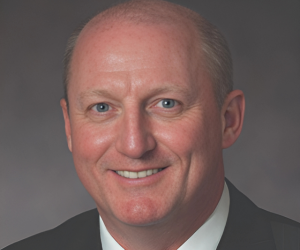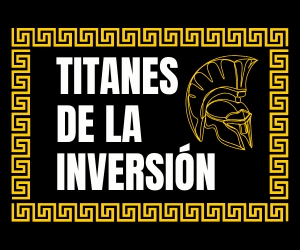Discover Dennis Hong's impact on the investment world, his winning strategy, and the role of ShawSpring Partners. Transforming the tech sector, one step at a time.
Home
»
Investments
»
WARREN BUFFETT OUT, GREG ABEL IN
At 94 years old, Warren Buffett announced that he will step down as CEO of Berkshire Hathaway at the end of 2025, marking the end of an era that defined modern capitalism. During the highly anticipated annual shareholders meeting in Omaha, known as the "Woodstock of Capitalism," he confirmed that Greg Abel, vice president of non-insurance operations, will take over as CEO on January 1, 2026. However, Buffett will continue as chairman of the board and maintain his shareholding, ensuring that the culture and long-term focus that have defined Berkshire remain intact. This decision, though emotional, was met with stability by the market, reflecting confidence in a smooth transition and in Abel's role as successor. In this article, we explore the magnitude of Buffett's legacy, Greg Abel's executive profile, and how to invest today in a company that remains synonymous with stability and business vision.

Buffett's Legacy and the Transition to Abel
For more than six decades, Warren Buffett transformed Berkshire Hathaway from a failing textile company into one of the most diversified and profitable conglomerates in the world. With iconic stakes in Apple, Coca-Cola, American Express, and Geico, among others, his philosophy based on patience, intrinsic value, and operational independence redefined modern investing.
On May 3 and 4, 2025, before a global audience and over 30,000 shareholders at the CHI Health Center in Omaha, Buffett formally announced his retirement as CEO. He did so with his characteristic calmness and a clear message: “I’m not leaving, I’m just leaving the part of the job Abel does better than me.”
Buffett: Still Present, but Without Daily Steering
Buffett will continue as chairman of the board, maintain his 31% voting stake, and reaffirmed that he will not sell his shares. He also indicated that his wealth will continue to be donated to philanthropic causes under the Giving Pledge. In his words: “I still have full confidence in the company. And if I trust it, there’s no reason to sell.”
The decision was unexpected for some, but not unplanned: Buffett has been preparing for succession since 2021.
Ajit Jain and other top executives expressed their support for Abel during the meeting.
The tribute to Charlie Munger was one of the most emotional moments of the event.
The immediate market impact was negligible: Berkshire's shares did not register significant changes, a sign of investor confidence. With $347 billion in cash and a diversified portfolio, the company remains strong, even in an uncertain global context.
Buffett concluded by saying: “This is not the end, it's the next chapter. And Greg is the right author to write it.”
Who is Greg Abel?
Greg Abel, born in 1962 in Edmonton, Canada, is a trained accountant and the current Vice Chairman of Berkshire Hathaway for non-insurance operations. Since 1992, he has been part of the Berkshire ecosystem after joining MidAmerican Energy (now Berkshire Hathaway Energy), where he led the expansion into renewable energy and demonstrated notable operational capabilities.
From Operator to Architect
Known for his reserved profile, Abel is an obsessive reader of financial reports, a demanding leader with his teams, and a meticulous executor. He oversees more than 180 companies within Berkshire, including BNSF (the largest railroad in the U.S.), Dairy Queen, NetJets, Duracell, Lubrizol, and over 100 industrial manufacturers. In Q1 2025, these units generated over $5 billion in net profit.
He led Berkshire’s expansion in Japan with investments in five sōgō shōsha.
Implemented a system of decentralized KPIs and monthly reports.
Avoids interviews, social media, and public appearances.
Abel has been described by colleagues as “the man who does all the work while Buffett gets the credit.” He lives in Des Moines, Iowa, his fortune is around $1 billion, and he serves on several boards. His vision: maintain what works, adjust what doesn’t, without changing the soul of Berkshire.
High-Voltage Challenges
Abel will take charge in a volatile context: structural inflation, tensions with China, technological disruptions, and fierce competition for capital. Although some fear he lacks Buffett's "instinct," his disciplined approach and ability to operate complex companies position him as the exact type of leader Berkshire needs to thrive over the next 30 years.
How to Invest in Berkshire Hathaway
The departure of Buffett and the arrival of Abel do not represent a change in course, but rather a natural evolution. For investors, Berkshire's approach remains one of the strongest in the global market: low asset turnover, strong cash flow, leading companies, and a long-term decentralized structure.
Three Ways to Gain Exposure to the Berkshire Legacy
Class B Shares (BRK.B): traded on Nasdaq and can be easily acquired through brokers like FXPro or other international platforms.
Indexed ETFs: funds like VOO (S&P 500) and VTI (total US market) include Berkshire as one of their main positions.
Berkshire-Style Investing: replicate Buffett and Abel's philosophy: look for companies with competitive advantages, strong margins, low debt, and the ability to grow over time.
Why Does Berkshire Remain a Smart Option?
Berkshire doesn't need to reinvent itself because it already represents a unique combination of stability, growth, and long-term vision. It has exposure to strategic sectors like insurance, energy, transportation, manufacturing, and financial services. Its balance sheet is solid, its liquidity robust, and its operating model proven across multiple economic cycles.
Investing in Berkshire today is not just about looking back with admiration, but actively participating in a story that continues to be written. Greg Abel is already in action, the transition is orderly, and those who take positions with vision and discipline can benefit in this new phase.
YOU MAY ALSO BE INTERESTED







